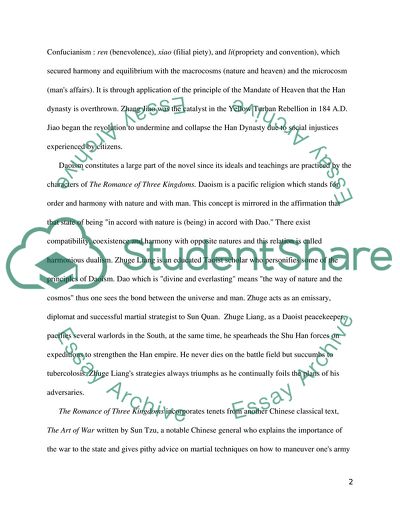Cite this document
(Brotherhood, the Art of War and Religion as Central Themes in Romance Essay - 1, n.d.)
Brotherhood, the Art of War and Religion as Central Themes in Romance Essay - 1. https://studentshare.org/literature/1752104-paper-on-three-kingdoms-by-luo-guanzhong
Brotherhood, the Art of War and Religion as Central Themes in Romance Essay - 1. https://studentshare.org/literature/1752104-paper-on-three-kingdoms-by-luo-guanzhong
(Brotherhood, the Art of War and Religion As Central Themes in Romance Essay - 1)
Brotherhood, the Art of War and Religion As Central Themes in Romance Essay - 1. https://studentshare.org/literature/1752104-paper-on-three-kingdoms-by-luo-guanzhong.
Brotherhood, the Art of War and Religion As Central Themes in Romance Essay - 1. https://studentshare.org/literature/1752104-paper-on-three-kingdoms-by-luo-guanzhong.
“Brotherhood, the Art of War and Religion As Central Themes in Romance Essay - 1”. https://studentshare.org/literature/1752104-paper-on-three-kingdoms-by-luo-guanzhong.


